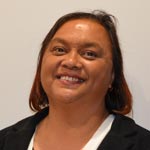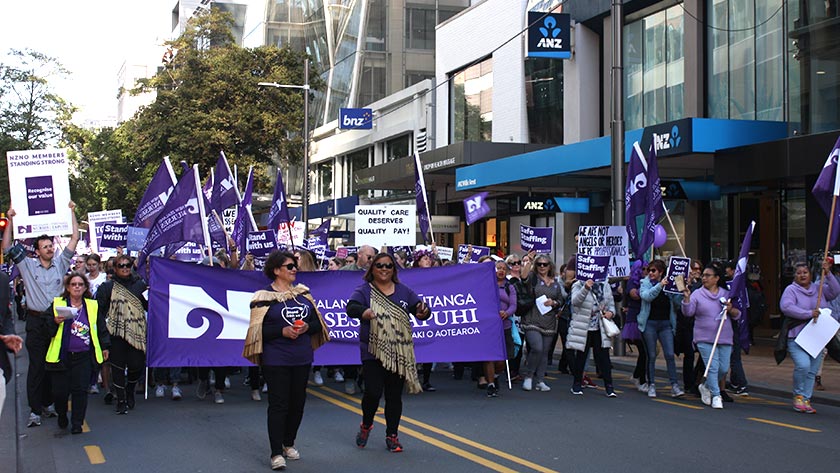As a child, Tracey Morgan (Ngāti Raukawa) believed being Māori and poor ruled out a career in nursing.
“I did grow up in poverty, so I always thought you had to be a rich person and that Māori couldn’t be nurses.”
Morgan grew up in the South Waikato town of Putāruru with seven siblings and close ties to her Māori and Pākeha grand-mothers.

As a six-year-old, she clearly remembers being transfixed by a Pākeha district nurse who came to treat an aunty.
“I used to wait for her to come and she would give me her left-over wound pack and gloves, and I used to think I was the coolest.”
At about the age of 11, while in hospital, her ideas were challenged when a Māori nurse treated her.
“And I thought I can be a nurse! I was just in awe, and I would tell her ‘I think you’re amazing’.”
“We need to stand and be heard and valued . . . because it’s too sad to see nurses getting burnt out.”
Despite her newfound hope, Morgan struggled with high school science, failing to gain the grades needed for nursing study.
“I cried when I got results and thought I will never be a nurse.”
After many years in banking and administration, it was motherhood – and Plunket – that became a bridge for Morgan, into a nursing career.
Putāruru Māori Women’s Welfare League president Ruthana Bigbie asked Morgan if she would help sign up whānau for the childhood vaccination programme.
When a new role as a Plunket kaiāwhina was created as part of a pilot, Morgan seized the opportunity to get more involved. After eight years in the role and with plenty of encouragement from her nurse colleague, Morgan signed up for the bachelor of nursing programme.

Her four tamariki were aged between four and 13 at the time, and she credits them and her husband for the sacrifices they made for her to do the course.
After graduating, she quickly returned to primary health care but with new skills and responsibilities as a registered nurse.
In the past 15 years she has worked in multiple roles in primary health practices, aged care and tamariki well-child programmes in the Hawke’s Bay, South Waikato, Tauranga and Rotorua.
In 2019, she and her husband resigned from their respective roles, and were preparing to join whānau in Perth, Australia – until her husband got cold feet.
“I cried when I got results and thought I will never be a nurse.”
Thrilled that Morgan was now staying put, her current medical practice owner asked her to manage a centre they had bought in Rotorua.
Within a year of graduating, Morgan was invited to her first regional committee meeting for NZNO in Hawke’s Bay. Within a few weeks the chair resigned and Morgan was asked to step up.
“I fell in love with it and I never stopped loving it.”
Morgan became involved in Te Rūnanga to support and grow the Māori nursing workforce, and she felt this was key to improving patient outcomes.
Soon she was invited to attend an NZNO AGM in Wellington – and was hooked.
“I loved being around all nurses.”
In 2019, Morgan was elected NZNO vice-president and became acting president a few months later – a period she says was extremely challenging.
Dealing with online abuse of the kaiwhakahaere, other members of Te Rūnanga, and herself, was painful, Morgan said.

In the 2021 leadership elections, Morgan stood unsuccessfully for president, losing to Anne Daniels.
Now, back on the board as a director, Morgan said she wants to focus on representing all members.
“We need to stand and be heard and valued . . . because it’s too sad to see nurses getting burnt out.”
The Maranga Mai! campaign launched in May boosted her confidence in the potential for the organisation to work in unity to achieve it’s goals, Morgan said.
“I want to be part of the solution that helps those nurses not go overseas, those young nurses come through and not be burnt out.”



